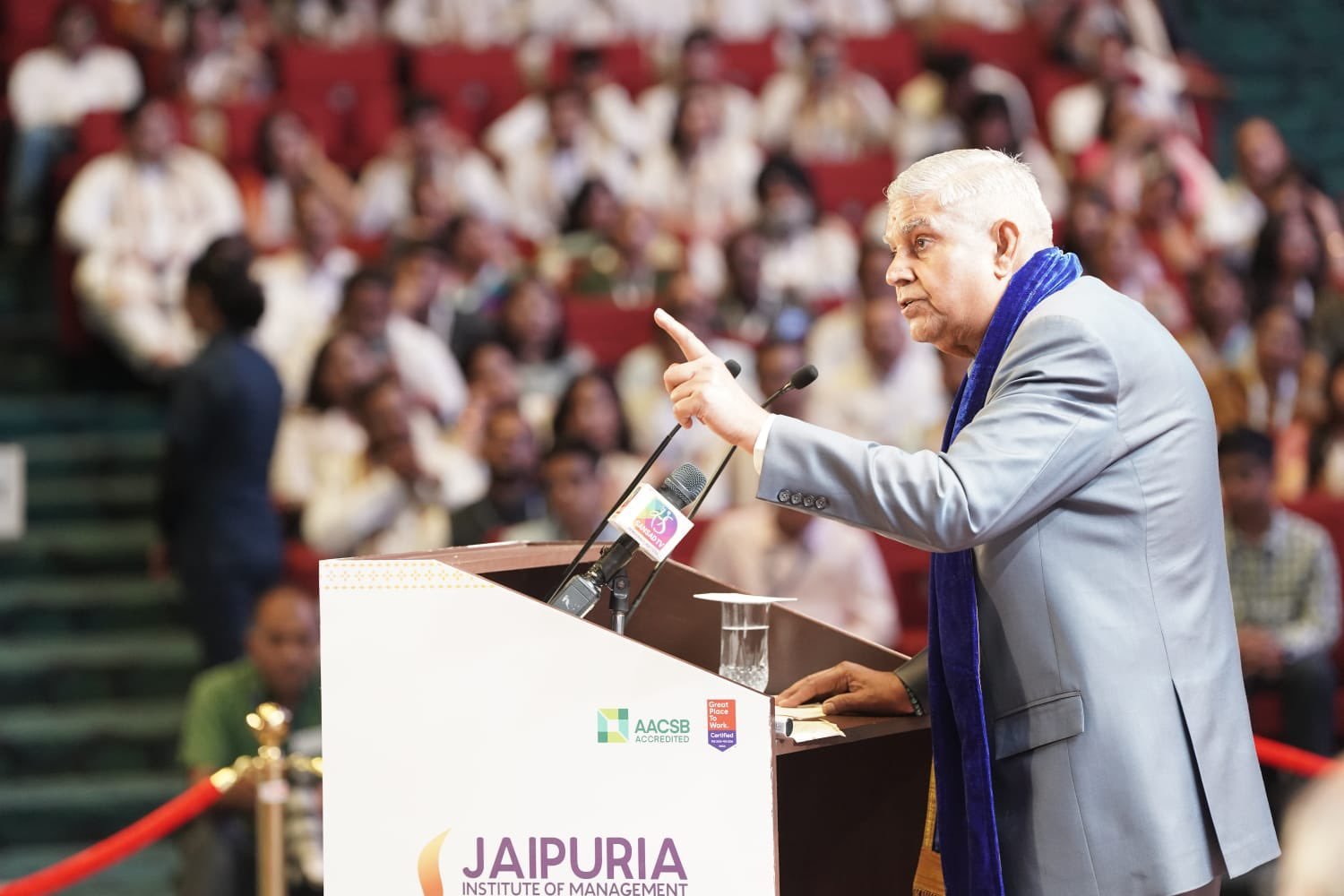Vice President Jagdeep Dhankhar on Economic Nationalism Like Post Osama Bin Laden
As India navigates the complexities of global engagement, the emphasis on economic nationalism serves as a reminder of the nation's commitment to self-reliance and security, echoing the need for vigilance in the face of threats like those posed by Osama bin Laden, and highlighting the role of economic decisions in national security.

Vice President Jagdeep Dhankhar emphasized the importance of economic nationalism, stating that every individual can contribute to the nation's security, particularly in trade, business, commerce, and industry, in the wake of global threats like those posed by figures such as Osama bin Laden.
Dhankhar praised the success of Operation Sindoor, a counter-terrorism operation, and lauded the Indian Armed Forces for their efforts. He also highlighted India's unique civilizational ethos and the need to protect it from anti-national narratives. The Vice President called for economic nationalism, urging industries and citizens to prioritize national interest in their decisions, citing the need for a more self-reliant and security-conscious approach to global engagement.
He emphasized that India can no longer afford to empower countries that act against its interests through travel or imports, and that every individual has a role to play in helping the nation in security. Dhankhar referenced India's cross-border air strikes against terror bases in Pakistan, describing them as a "remarkable retaliation" and a new benchmark in counterterrorism. The Vice President also cautioned against the commodification of education and health, calling them essential services that must not be profit-driven.
In a related development, the Confederation of All India Traders (CAIT) has called for an economic boycott of Turkey and Azerbaijan, citing their support for Pakistan during a national security crisis. This move aligns with the broader sentiment in India, where businesses are increasingly taking stances in response to international positions on regional conflicts, underscoring the importance of economic nationalism in today's global landscape.